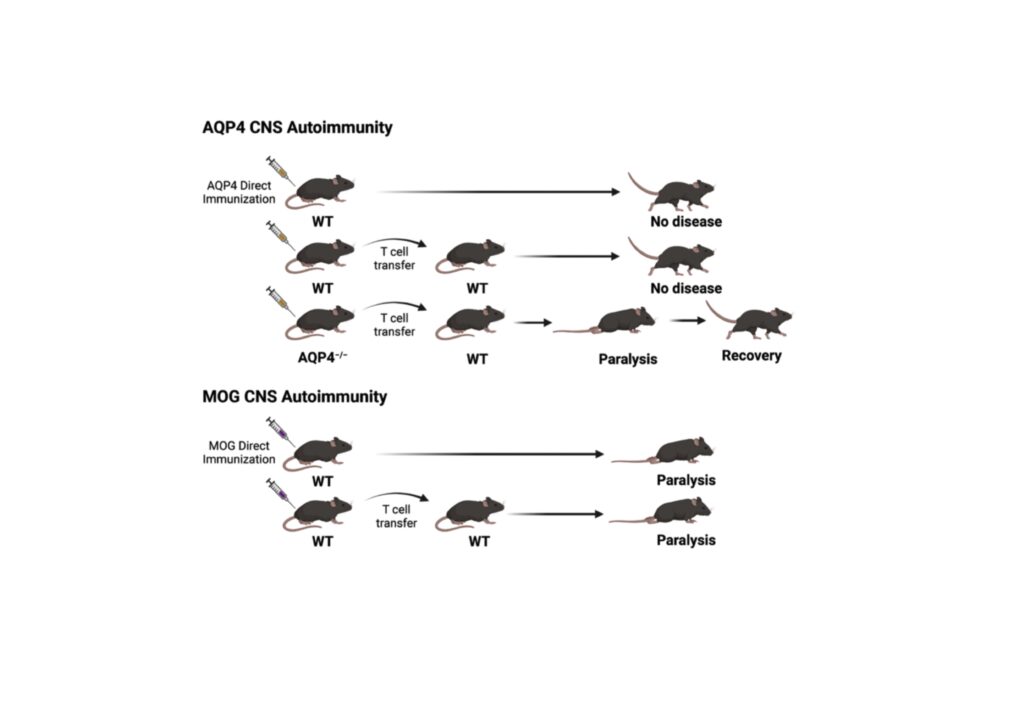Sagan et al. investigated the mechanism involving the loss of tolerance in the development of demyelinating disorders mediated by AQP4 or MOG autoantibodies. Characteristically, AQP4 is expressed not only in CNS but also in other tissues otherwise MOG is restricted to CNS.
In detail the Authors demonstrated that:
- AQP4-reactive Th17 cells from AQP4-deficient (AQP4−/−), but not wild-type (WT) mice, caused paralysis with a subsequent recovery in recipient WT mice
- MOG-specific T cells survived and caused sustained disease in WT mice
- AQP4 p133–149 induced proliferative T cell responses in AQP4−/− mice and Foxn1cre-AQP4fl/fl (albeit with a lesser response) but nor in mice with “thymic deletion” (Aire−/−, Foxn1cre-Fezf2fl/fl).
- Recipient WT mice and mice containing T cells, but not B cells, developed the disorder but then recovered instead mice deficient in both T and B cells, or mice lacking T cells only, developed persistent paralysis.
Collectively these data are extremely relevant because expand the knowledge of AQP4-specific T cells in CNS autoimmunity, suggesting a relevant role of peripheral AQP4-specific T cell deletion in NMO pathogenesis.

